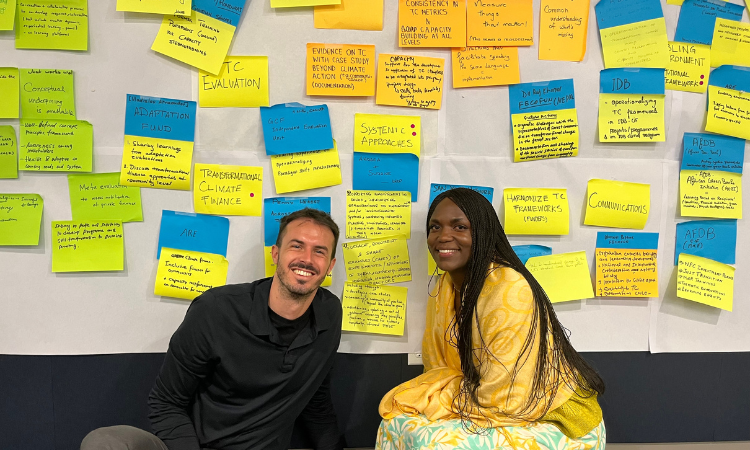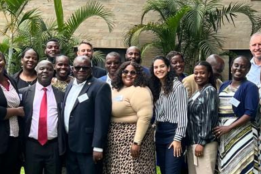Climate action requires ongoing innovation in country policies, global climate goals, and climate finance to equip communities to cope with the escalating impacts of climate change. Learning is an integral and critical part in driving and sustaining climate action: Asking relevant questions and generating new knowledge can lead to fresh insights. For example, how can we develop appropriate and effective learning processes that transform the way we manage organizations, finance country programs, and collaborate to achieve a thriving planet?
With these questions in mind, the Transformational Change Learning Partnership (TCLP), hosted by the Climate Investment Funds (CIF), held its annual workshop focused on “Learning for Transformational Change”. Held in Washington DC*, the meeting aimed to expand the group’s collective understanding of how learning can drive transformative action that supports countries in realizing their national development ambitions.

Collaborative learning through the TCLP
Patience Tembo is Principal Planner for Monitoring and Evaluation at the Ministry of Green Economy and Environment in Zambia. The workshop was particularly useful because Zambia is currently developing an investment plan with Malawi, Mozambique, Namibia, and Tanzania as part of the Zambezi River Basin regional investment proposal under CIF’s Nature, People, Climate Program. He sees understanding the concepts of transformational change and how that informs the investment development process as essential, especially the need to engage the private sector.
A key focus of this year’s meeting was sharing insights and lessons from an independent evaluation of CIF’s Forest Investment Program (FIP). Learning through evaluative processes informs CIF’s portfolio of forestry finance, while also generating lessons that guide the direction of future CIF programs. Transformational change is about bringing systems change, says Jess Kyle, the evaluation’s Deputy Team Lead of ICF, as she reflects on how the FIP results highlighted systems thinking to achieve more sustainable outcomes.
To support collaborative learning TCLP launched a series of “working sessions” in February 2024. These monthly one-hour virtual workshops on a variety of topics are structured to share knowledge, develop fresh thinking on transformational change and climate action, and, importantly, build a learning-focused community of practice. The sessions tap into the TCLP’s growing network of practitioners, policymakers, and community leaders, by pooling their expertise on a variety of topics from designing evaluations, to developing tools to support climate programs.
Learning that supports community action
One of the working sessions focused on the kind of learning approaches needed to achieve the 1.5°C target associated with the Paris Agreement. Led by distinguished professor Heila Lotz-Sisitka of Rhodes University in South Africa, the discussion explored what learning processes can be effective, especially those that give communities the agency to act in their own interest and, amplify their own voices and perspectives.
The full discussion was incorporated into the TCLP annual workshop and can be viewed here.
Learning through sharing knowledge
Learning can happen in different ways. As part of our mandate as a learning laboratory, CIF facilitates country engagement through sharing and collaboration. A prime example was the Asia Pacific Knowledge Exchange held in Phnom Pehn, Cambodia last year. It brought together country representatives working in finance, climate, environment, as well as those in civil society and the private sector to share lessons and insights from CIF investments in their countries. Chan Sopanhavorn, Deputy Director of the Department of Multi Vectoral Operation, Ministry of Finance, Cambodia, explains the value of drawing on the insights and experiences of other countries.
TCLP will continue its monthly working sessions, annual workshop, and responsive engagement with a wide range of stakeholders as it builds a community of practice that facilitates learning, generates new insights and supports collaboration that drives transformative climate action.
* The workshop was held on October 15 to 17, 2024, in Washington DC




